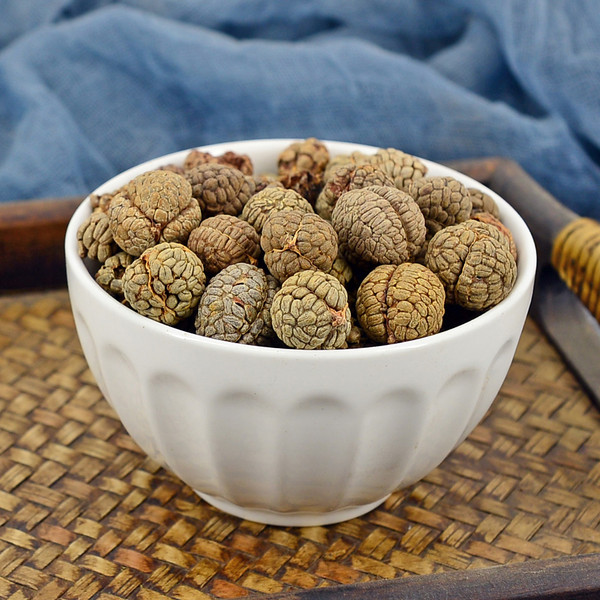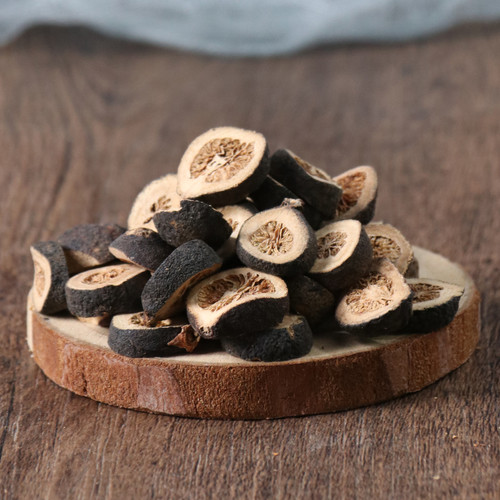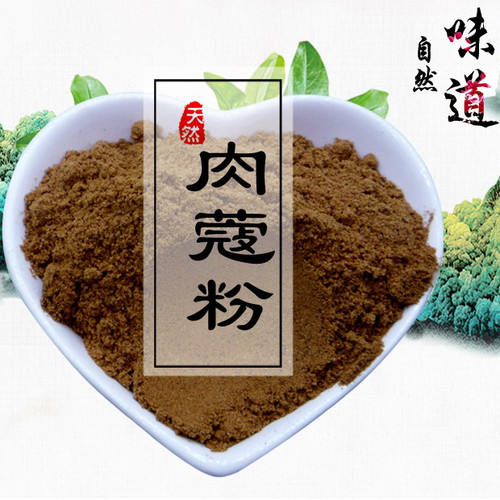Product Overview
Parts used: Dried kernel
TCM category: Herbs that stabilize and bind
TCM nature: Warm
TCM taste(s): Pungent
Meridian affinity: Spleen Stomach Large intestine
Scientific name: Myristica fragrans
Use of nutmeg (Rou Dou Kou) in TCM
Please note that you should never self-prescribe TCM ingredients. A TCM ingredient is almost never eaten on its own but as part of a formula containing several ingredients that act together. Please consult a professional TCM practitionner, they will be best able to guide you.
Preparation: Remove the shell, peel, dry at low temperatures. Crush or grate before use.
Dosage: 3 - 9 grams
Main actions according to TCM*: Warms the Spleen and Stomach, circulates Qi. Protects the Intestines and stops diarrhea.
Primary conditions or symptoms for which nutmeg may be prescribed by TCM doctors*: Diarrhea Abdominal pain Vomiting Loss of appetite Abdominal bloating
Contraindications*: Not to be used for Damp Heat dysentery and diarrhea.
Common TCM formulas in which nutmeg are used*:
For Qi Stagnation caused by Cold Stomach and Spleen combine nutmeg with crow-dipper rhizomes (Ban Xia), costus roots (Mu Xiang) and fresh ginger (Sheng Jiang).
For Cold type dysentery and diarrhea caused by Deficient Spleen Qi combine nutmeg with atractylodes rhizomes (Bai Shu) and codonopsis roots (Dang Shen).
Key TCM concepts behind nutmeg (Rou Dou Kou)'s properties
In Traditional Chinese Medicine (TCM), nutmeg are plants that belong to the 'Herbs that stabilize and bind' category. This category of herbs is used for treating abnormal discharges and displacement of organs. This includes conditions such as diarrhea, discharges from the vagina, penis or rectum as well as prolapse of the uterus or rectum. It is important to note that herbs in this category only treat symptoms, so one should also use herbs to treat the underlying Deficiency.
Furthermore nutmeg are plants that are Warm in nature. This means that nutmeg tend to help people who have too much "cold" in their body, although with less effect than a plant that would be Hot in nature. Balance between Yin and Yang is a key health concept in TCM. Those who have too much cold in their body are said to either have a Yin excess (because Yin is Cold in nature) or a Yang deficiency (Yang is Hot in Nature). Depending on your condition nutmeg can help restore a harmonious balance between Yin and Yang.
Nutmeg also taste Pungent. The so-called "five elements" theory in Chinese Medicine states that the taste of TCM ingredients is a key determinant of their action in the body. Pungent ingredients like nutmeg tend to promote the circulations of Qi and body fluids. That's why for instance someone tends to sweat a lot when they eat spicy/pungent food.
The tastes of ingredients in TCM also determine what organs and meridians they target. As such nutmeg are thought to target the Spleen, the Stomach and the Large intestine. In TCM the Spleen assists with digestion, blood coagulation and fluid metabolism in the body. The Stomach on the other hand is responsible for receiving and ripening ingested food and fluids. It is also tasked with descending the digested elements downwards to the Small Intestine. The Large Intestine receives the "impure" parts of the digested food from the Small Intestine, absorbs the remaining fluids and excrete the remainder as feces.
Use of nutmeg (Rou Dou Kou) as food
Nutmeg are also eaten as food. It is used as an ingredient in dishes such as Bechamel sauce or Mashed potato with nutmeg.








